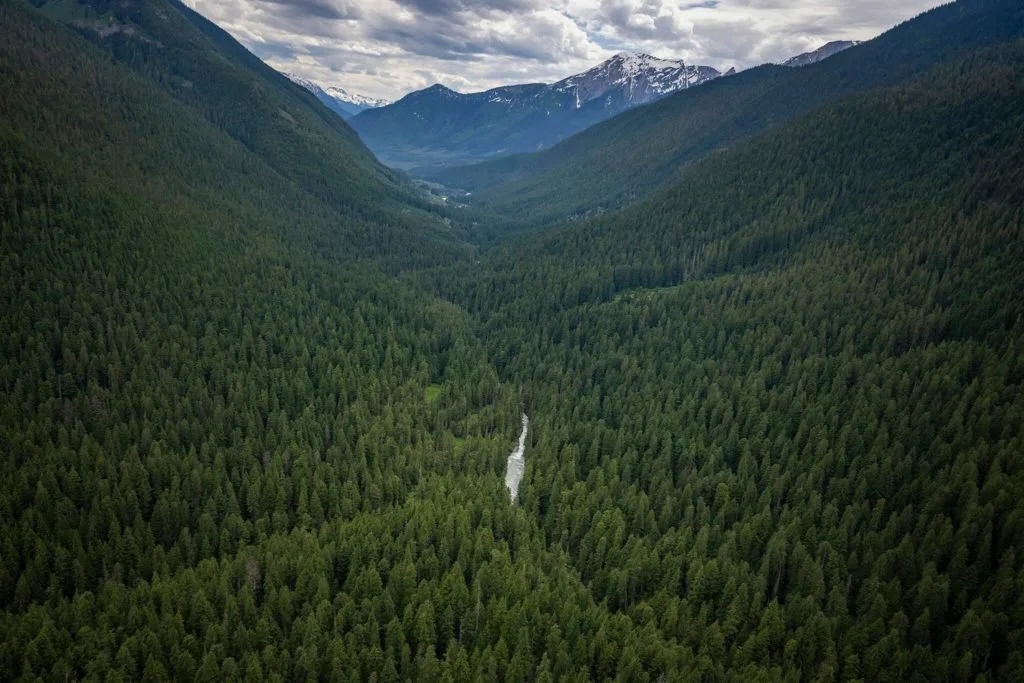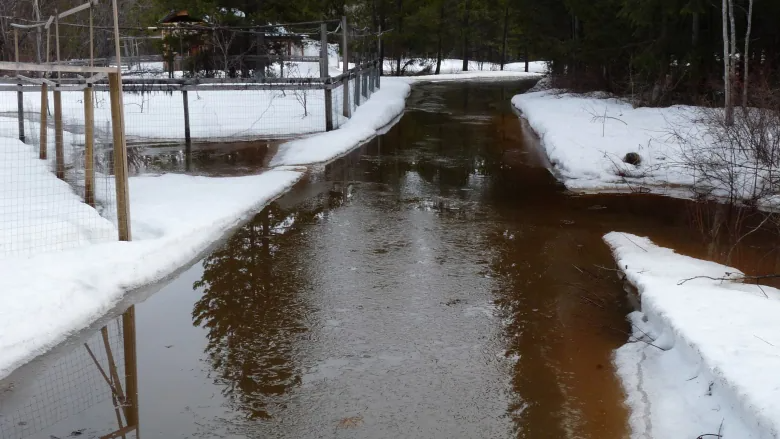A historic deal signed Friday will protect 30 per cent of B.C.’s lands and waters by 2030. The Trilateral Framework Agreement was signed between the federal and British Columbia governments and the Indigenous-led First Nations Leadership Council. With this agreement, the federal government will be contributing $500 million and the B.C. government has dedicated more than $500 million, which includes a fund for old-growth forests and the opportunity for additional funds from the philanthropic community. The agreement includes a commitment to work together toward protecting 25 per cent by 2025, including on Indigenous protected areas.
B.C., Canada help farmers with climate adaptation, drought
B.C. farmers and ranchers can better prepare for and mitigate impacts of climate change, while continuing to support the province’s food security and a sustainable environment through funding from the governments of Canada and British Columbia. Funding is available via the Beneficial Management Practices (BMP) program. “The Government of Canada is committed to helping our agricultural producers mitigate the impacts of climate change,” said Lawrence MacAulay, federal Minister of Agriculture and Agri-Food. “This investment will offer B.C. farmers the support they need to adapt their operations to be more resilient to the impacts of climate change, while protecting food security and the environment for future generations.”
B.C. warns of summer drought and asks people to conserve water
The British Columbia government is urging people to save water, saying the forecast predicts drought across much of the province this summer. A statement from the Forests Ministry says recent rains have provided some relief in parts of B.C., but it hasn't been enough to make up the deficit. B.C.'s drought map shows much of the northeastern corner of the province is at drought level four on the five-level scale, meaning conditions are extremely dry, with communities and ecosystems likely to experience adverse impacts.
British Columbians encouraged to prepare for possible spring flooding
With warming temperatures increasing the likelihood of rising water levels, British Columbians are encouraged to prepare for potential spring floods, while the Province, local governments and First Nations work together to keep people and communities safe. High-elevation snowpacks have not yet developed to the point that increased heat will cause significant runoff. At this time, forecasters are not anticipating a flood hazard over this current warming period for rivers lying in higher elevations, including larger rivers such as the Fraser River.
1 down, 168 to go: Environmentalists call for province to protect 30% of land by 2030
Environmentalists are praising the creation of a new conservancy area near Revelstoke, but the provincial government needs to create 168 like it to meet its own protection goals by 2030. Both Premier David Eby and Environment Minister George Hyman said during last month’s announcement of a new conservancy in the Incomappleux Valley that the province wants to protect 30 per cent of its land base by 2030.
B.C. agrees to pay $300K to couple who say logging flooded their property
Lawyers for the British Columbia government have agreed to pay $300,000 to settle a lawsuit by a couple whose property flooded after a third of the forest in the surrounding watershed was cut down. The agreement came in a handwritten note that was signed by the Crown's lawyers and handed over in court on the day the trial was set to begin last month. Ray Chipeniuk and Sonia Sawchuk had launched the lawsuit in 2014, claiming that B.C. Timber Sales, the provincial Crown agency responsible for auctioning about 20 per cent of B.C.'s annual allowable cut, was negligent in its failure to take reasonable care to ensure their property in northwestern B.C. would not be damaged by the logging.
New $84.4M water system in Abbotsford, B.C., aims for climate resilience
The City of Abbotsford is getting funding help from the B.C. government to bolster its drinking water system against floods, wildfires and other climate-related disasters. Municipal Affairs Minister Nathan Cullen said Wednesday the $62 million in government funds will support a new well and water-treatment system to serve more than 165,000 people in Abbotsford, Mission and the Matsqui First Nation.
Canada and British Columbia invest in 57 infrastructure projects across the province to create inclusive, resilient communities
Investments in local infrastructure projects help build inclusive, resilient communities. They create good jobs and business opportunities, address some of the gaps highlighted by the pandemic, and support local climate-related initiatives. Today, the Honourable Joyce Murray, Minister of Fisheries, Oceans and the Canadian Coast Guard, on behalf of the Honourable Dominic LeBlanc, Minister of Intergovernmental Affairs, Infrastructure and Communities, and the Honourable Nathan Cullen, British Columbia's Minister of Municipal Affairs, announced more than $110.3 million in joint federal-provincial funding for 57 community, recreation, and green infrastructure projects across British Columbia.
Good news for water: BC budget contained good news for water protection
Peachland residents, Syilx people and water leaders are encouraged the provincial government has acknowledged many communities in B.C. face a water crisis, made worse by a changing climate and increased land uses. Budget 2022 dedicates $30 million in much-needed funding to safeguard B.C.’s watersheds by supporting local and Indigenous governments and non-profits like Peachland Watershed Protection Alliance doing watershed work. As the climate crisis continues, we are also pleased to see the government recognize the central role those resilient watersheds play in our lives by investing in much-needed floodplain mapping and outdated flood infrastructure, which will make our communities more resilient to future storms and floods.
Proposal for gold and copper mine on First Nation's territory rejected for 3rd time by B.C. government
The British Columbia government says a proposed copper and gold mine on a First Nation's territory will not be given an environmental assessment certificate, citing potential risks to water quality and fish. In a news release, the government said Monday it has rejected the open-pit copper, gold and molybdenum Morrison mine located about 65 kilometres northeast of Smithers, B.C., which was expected to produce 30,000 tonnes of ore per day over a 21-year period.
Province, Ducks Unlimited create strategies to protect wetlands
With global warming, the B.C. government is looking for ways to protect watersheds. On Tuesday, the province released its Watershed Security Strategy, which includes advice from Ducks Unlimited Canada, and the conservation group calls it an important step. The discussion paper explores key issues including climate change, wildlife habitats, sources of drinking water, as well as community and economic stability. Sarah Nathan, Ducks Unlimited Canada’s manager of provincial operations for B.C., was on hand for the event. She joined George Heyman, Minister of Environment and Climate Change Strategy, at a virtual announcement to discuss the critical role wetlands play in the health and security of watersheds. Referencing the gamut of floods, droughts, wildfires and debris flows that devastated the province this past year, Nathan stressed that protecting and bolstering wetlands is a must.
BC’s Effort to License Water Use Falling Apart, Critics Say
B.C.’s opposition parties want the government to extend — for a second time — an approaching groundwater licensing deadline, warning of a looming crisis for local farms and small businesses. “We are just deeply concerned,” said Shirley Bond, the interim leader of the BC Liberal Party, in an interview. “We want them to extend the deadline, but additionally we want them to do a better job of getting the information out there and finding people who haven’t registered and help.”
Funding flows to B.C. water projects
Four projects that support drinking water and wastewater infrastructure are getting a funding boost from B.C. and the federal government. The province announced more than $19.2 million in joint funding will go towards four projects to support drinking water and wastewater infrastructure. The projects will upgrade existing wastewater treatment facilities or construct new drinking water facilities to enhance water capacity, comply with provincial standards, improve surface water quality and protect the surrounding environment. “Upgrades to water and wastewater management systems in these four communities will increase treatment capacity, provide safe potable water to a larger number of residents, and help protect local ecosystems,” said Dominic LeBlanc, minister of intergovernmental affairs, infrastructure and communities, in a statement. “Our government is working collaboratively with our provincial, municipal, and First Nations partners to invest in clean water and create healthy, resilient communities.”
Mining Association of B.C. offers cash prize for water innovation
Companies that come up with new ways to conserve and treat water in B.C. mining operations have a chance to win $150,000, in a contest organized by the Mining Association of B.C. MABC president Michael Goehring announced the industry’s first-ever Mining Innovation Challenge on Thursday. Co-sponsored by the B.C. government, Natural Resources Canada and industry players Teck Resources and Newcrest Mining, the competition for entrepreneurs is open until Feb. 18 for expressions of interest, with a winner to be announced at the end of June.
Canada and British Columbia invest over $110 million in 14 drinking water, wastewater and stormwater infrastructure projects to provide reliable services to communities
The governments of Canada and British Columbia continue to invest in local infrastructure during this unprecedented time to meet the needs of communities across the province, enhance peoples' quality of life, and support economic recovery from COVID-19. Today, the Honourable Catherine McKenna, Minister of Infrastructure and Communities, and the Honourable Josie Osborne, British Columbia's Minister of Municipal Affairs, announced funding for 14 water , wastewater and stormwater infrastructure projects in the province. Supporting communities to build modern and reliable water infrastructure is a shared priority for both governments.
Thompson-Okanagan region asked to cut water consumption by 30% amid ongoing drought
The B.C. government is asking people in the Thompson-Okanagan region to reduce their water use by 30 per cent during ongoing drought conditions in many parts of the southern and central Interior. The province said Thursday in a written statement very low spring rainfall and extreme heat conditions in June and July have caused water scarcity and low flows.
Drought danger grows as some parts of B.C. see no rain for almost 5 weeks
While some parts of British Columbia could see a raindrop or two this week the warm temperatures and sunny skies dominating the forecast for most of the province do not bode well for flora and fauna already fighting drought conditions. According to the province's Drought and Water Scarcity Response Plan, which was last updated in May, drought conditions are classified on a scale of one to five. The Kettle River and Salmon River basins in the Interior are currently hovering at Level 4, as is east Vancouver Island.


















